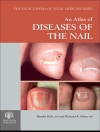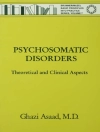This fully updated and expanded second edition of a successful book reviews the most important neuropsychological measures currently used in the assessment of dementia by the principal clinicians and researchers associated with the tests. Several clinicians and research workers, who have been at the forefront in developing the tests in question, provide clear practical guidance on the scope of each test, use in research, as well as an analysis of their accuracy and limitations. The international contributors have brought together a concise and practical guide on the role of neuropsychological testing to support the dementia assessment.
Neuropsychological Assessments of Dementia in Down Syndrome and Intellectual Disabilities, Second Edition is an essential reference for all those working in the field of dementia and intellectual disabilities.Cuprins
Overview of the diagnostic instruments for dementia in people with intellectual disability.- Issues in Dementia Assessment.- The Dementia Questionnaire for persons with intellectual disabilities (DMR).- Dementia Scale for Down Syndrome.- The Dyspraxia Scale for adults with Down syndrome.- Adaptive Behavior Change and Dementia in Down Syndrome: Case Classification using the Adaptive Behavior Scale.- The Cambridge Examination for Mental Disorders of Older People with Down’s Syndrome and Others with Intellectual Disabilities (CAMCOG-DS).- The Test for Severe Impairment.- Detection of Memory Impairment: The Cued Recall Test.- The Adaptive Behaviour Dementia Questionnaire (ABDQ).- Dementia Screening Questionnaire for Individuals with Intellectual Disabilities.- Rapid Assessment for developmental Disabilities.- Severe Impairment Battery.- Strengths of Previous Work and Future Challenges.
Despre autor
Vee Prasher is a NHS Consultant in Intellectual Disabilities and visiting Professor of Neuropsychiatry. He qualified in 1985 from the University of Birmingham UK as a Medical Doctor. He initially did neurosurgery training, later general psychiatry, and finally specialised in the field of intellectual disability. He has been actively involved in research in intellectual disability, having published over 100 articles relating to people with intellectual disability. He has completed 3 post doctorate degrees in this field, MMed Sc, MD, and Ph D. As an editor or author he has published 10 textbooks. He has a recognised international reputation and has been involved in a number of international studies and reports highlighting health issues for persons with intellectual disability.












